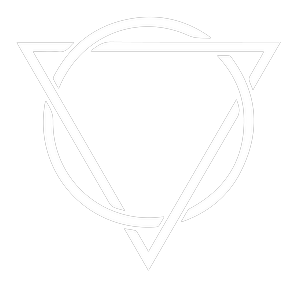The terms "first world", "second world", "third world", and later "fourth world" originated as a Cold War geopolitical framework that divided the Earth realm into distinct categories based on nations' levels of development.
The "first world" was classified as Western nations like those in Western Europe and North America that at the time became further allies with The United States. The term "Second World" described more Eastern countries aligned with the Soviet Union and its allies. Such as the communist bloc nations that had been absorbed under the USSR including some countries in Eastern Europe and parts of Asia such as China and North Korea. The term "third world" likely was coined by French demographer Alfred Sauvy in 1952, drawing an analogy to the "Third Estate" in pre-revolutionary France, which represented lower class poverty. Which in cold war era rhetoric, described countries that were non-aligned with either the Western bloc or the Eastern bloc. Which encompassed many nations in Africa, Asia, and Latin America, often characterized by developing economies. The term "fourth world" was later popularized in 1974 by Shuswap Chief George Manuel in his book "The Fourth World: An Indian Reality" to categorize regions that did not fit into the existing political or economic categorizations at all, meaning those who don’t use money, such as indigenous peoples and other stateless and often marginalized and oppressed groups who are not fully integrated into the nation-states where they reside.
The concept of the Second World largely disappeared after the end of the Cold War in the early 90's and the collapse of the Soviet Union. Which then resulted in many former then called "Second World" nations transitioning to market-based economies and more democratic leaning governance, arguably then becoming part of "the First World". But, unfortunately, the terms "third world" compared to "first world" are outdated language which one can still hear today and we are even conscious of being guilty to have done so in our rhetoric and are always trying to move away from such.
Although the "First World" did deserve a pat on the back for half the time leading the way for other nations to become more democratic, while the other half of the time fueling anti-democratic coups in South America, the term "First World" is increasingly seen as problematic for several reasons, as it reflects outdated, inaccurate hierarchical, and oversimplified ways of categorizing entire countries. The label "First World" at the time was very much a Western framing on behalf of the West. With self-arrogance implying first in line superiority over "Second World" and "Third World" countries, let alone the "Fourth World" which was and still is often considered irrelevant. Creating inaccuracy that suggests the entire population of certain entire nations were inherently "better" or more advanced than the entire population of certain entire other nations, not to mention also marginalizing alternative systems of governance, economic structures, and alternative cultural approaches to societal well-being. Because the "Third World" became synonymous with poverty, underdevelopment, and instability, which stigmatized many non- "First world" categorized countries. Basically implying that the "first world" was synonymous with suburban 1950's era infrastructure with concrete roads and multiple room houses with central heat and air conditioning, while third world meant dirt roads with thatch or cinder block huts with chickens wandering around on their dirt floors. Yet numbered binary framing totally ignored nuances and perpetuated a false narrative based only on linear economic progress and is rooted in geopolitical divisions that no longer exist. Reinforcing the mindset of a privileged, superior group of nations while oversimplifying the challenges faced by others.
So it's key to note that the use of "Third World" can be seen as an old and outdated mental operating system which is and always was a pejorative, and more modern and precise terminology is superior in contemporary discourse. Because the term "First World" being used today very much fails to account for the complexity of global development. For example, many so-called "First World" nations very much still struggle with issues like poverty, inequality, and infrastructure gaps while some "developing" or "Third World" nations have areas of rapid growth and innovation. Today, terms like "Emerging Economies", or "Developing Countries", "Low to Middle Income Countries", and "Global South" are more commonly used now to describe former "third world" classified countries and economic statuses. With "Global North", "High-Income Countries", "Developed Countries", or "Industrialized Nations" being better terms for what used to be called the "First World". With developing countries being not the best cause the so called "developed countries" of the North still having plenty of developing to do and "industrialized" nations also not being so great cause today they still have plenty of failing infrastructure. And we'll keep this totally on brand by saying, due to our life transformative experiences with shamanism, what used to be considered "fourth world" and is now better classified simply as "indigenous peoples" have some of the most superior spirituality and the least empire of any of the other classifications.
What this ultimately comes down to is the difference in "standard of living" compared to "quality of life". And we'll get into that, in the next insight.
